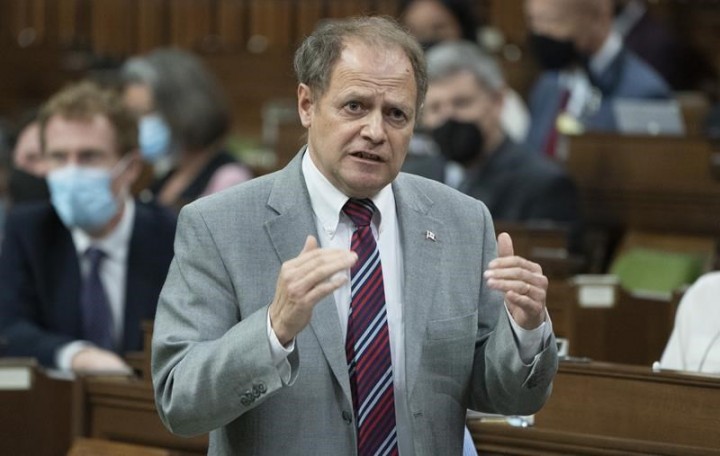OTTAWA — The government’s five-month-old fall economic statement should finally pass the House of Commons Wednesday following some procedural manoeuvring by the Liberals and the NDP.
The two parties, which signed a confidence and supply agreement in March to work together on key votes, voted in favour of a motion to push ahead with the final hours of debate on Bill C-8 Tuesday morning instead of the committee report on aquatic invasive species the Conservatives wanted to talk about.
That move came 12 hours after the Liberals and NDP also voted to pass a Liberal motion making it easier to push debate on legislation along in general.
Motion 11 gives the Liberals the ability to extend the sitting day until midnight for the rest of the spring. It passed Monday night with the Liberals and NDP voting in favour and the Conservatives and Bloc Québécois against.
Liberal Kevin Lamoureux, the parliamentary secretary to House Leader Mark Holland, said that motion is the reason C-8, which was introduced Dec. 14, can come to its final vote Wednesday.
The bill was debated for two hours until midnight Monday, and for the final five hours required Tuesday. It will be voted on after question period Wednesday before going to the Senate.
The bill includes three new tax credits that are delaying tax refunds for some teachers, farmers and small businesses because they can’t receive the credits for the 2021 tax year unless the bill becomes law. The credits are for teachers who buy classroom supplies, farmers to get money back from the carbon price and small businesses who invest in better ventilation.
Lamoureux insists the motion passed on Monday will only be used when another party agrees with the Liberals that a piece of legislation needs to move faster and says the Conservatives are actively trying to slow down the legislative process.
Conservative House leader John Brassard says the motion gives the Liberals way too much power to disrupt the House sitting schedule, force last minute late-night sittings and even adjourn the House entirely to the fall on a whim.
“While the NDP used to be a reliable voice against Liberal government overreach, their decision to vote with the Liberals has made it clear that Justin Trudeau has bought himself a majority government with billions of dollars in unaffordable NDP promises,” he said.
NDP finance critic Daniel Blaikie said the Conservatives are the ones asking for more time to debate things, and the motion to extend sitting hours does just that.
Lamoureux said C-8 has had more than 10 days of debate which is more than most budgets get, and it’s time for it to pass.
Blaikie said only Conservatives still wanted to speak about the bill, but there cannot be endless discussions with no sense of when the point has been made.
“It does matter how much people rag the puck,” he said.
This report by The Canadian Press was first published May 3, 2022.
Mia Rabson, The Canadian Press
